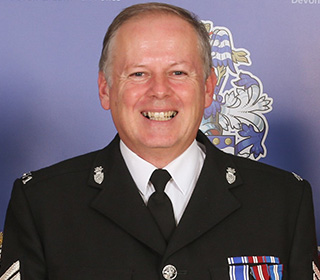
BA (Hons) Criminology
Explore the causes and consequences of crime and criminality whilst investigating how society responds to crime and victimisation. Understand and investigate different approaches to reducing crime.

Entry requirements
Three A-levels at grades CCC - BBC
Or BTEC triple grades MMM - DMM
We accept Access to HE Diplomas with credits in line with UCAS tariff point range
T Level - Pass (C and above) - M
GCSE Grade C or 4 English Language or an acceptable equivalent qualification and either GCSE Grade C or 4 Mathematics or a Science
We will accept 2 AS levels in lieu of one A level but must be accompanied by 2 A Levels or BTECs (General Studies is excluded).
UCAS points 96 - 112
UCAS code 72H2
UCAS institution code P63
Duration Three years full-time or part-time options available
Any questions?
Contact Charley, our Applicant Support Coordinator, if you have any questions. Email: applicantsupport@marjon.ac.uk and Charley will get back to you!
Course Summary
Crime is everywhere – in the news, at the cinema, on our TV screens, and in the books we read. This course offers you the opportunity to look behind the headlines to explore the complexity of a subject which fascinates and worries us in equal measure.
You will study crime from a variety of perspectives ranging from seemingly simple questions such as ‘what is crime?’ to considering the impact of the media on our understanding of crime and the way we deal with crimes such as youth violence and domestic abuse. As a Marjon criminology graduate you will have a thorough understanding of the social, political and cultural nature of crime as well as how crime is addressed locally, nationally and globally.
Why this course at Marjon?
The tutors have all worked inside the criminal justice system
You’ll also learn from guest lecturers who are currently working in the field
Our teaching is always led by the latest research, so you’ll be well informed about the cutting edge of criminology
Opportunities for exchange, study abroad, internships and work shadowing
Small class sizes enable focused and personal tuition
Field trips to criminal justice environments such as law courts, coroner courts, CCTV surveillance units, police custody suites and police stations
Modules for this course
Course Snapshot
“ Criminology at Marjon allows us to study criminology and crime in varying contexts. We are able to learn about the perspective of a victim, how crimes affect communities and even what is considered a crime in different times and spaces. It offers us the opportunity to learn about crime in a historical context to show how it has changed during a third year module which allows you to use current issues and discuss them in class. The course covers a wide variety of modules, some of which have law contexts and some more hard hitting such as Counter Terrorism. Most, if not all modules, allow you to personalise your learning by choosing assignment and presentation topics, which means you can cater to your own interests, and makes the course engaging and enjoyable. ”
1st Year
Crime and the criminal justice system
Social problems
Academic personal and professional development
Criminological theory
Victims and victimology
Criminal Law
2nd Year
Understanding punishment: prisons and penology
Police and policing
Research methods
Globalisation and crime
Designing safe communities
Understanding violence
3rd Year
Criminology honours project
Investigative psychology
Security and counter-terrorism
Cyber crime
Contemporary issues in crime and criminology
See where our graduates are now
Callum – BSc (Hons) Criminology Graduate
"I found the best part of the course was the real-life exposure to elements of the Criminal Justice System; HMP Exeter and the London Crown Courts are just two of the places we visited. The support from lecturers who were able to provide close tuition also really helped me through the programme."
Morgan - BSc (Hons) Criminology Graduate
"From the very start, we learned key theories and concepts that laid the foundations for assignments, everyday thinking, and now my career. The course encourages you to explore the areas that interest you through assignments and field trips. Whatever area you’re interested in, the lecturers will get you there. Overall, my criminology degree was intellectually stimulating and provided me with the skills and knowledge to pursue a career in the criminal justice system and beyond.”
This course is perfect if you’re curious about
What is crime?
Why is there crime in the first place?
Who commits crime?
Why do some people become criminals and others do not?
How best do we support victims?
How can we prevent crime and make our communities safer?
What might you become?
There are multiple opportunities for graduates with a degree in criminology, as this equips you with a wide range of transferable skills. These include working in the civil service, courts, or social worker, community development worker, police officer, prison officer, probation officer and youth worker.
How you’ll be taught and assessed?
How will you be taught?
Includes lectures, seminars, experiential learning, guest speakers and field trips (domestic and international) to criminal justice agencies/sites such as prisons, police stations and other relevant organisations.
How will you be assessed?
Assessment methods are varied and allow students to choose their own topics so that can further explore their own areas of interest. Students will complete one or two assessments per module which might include case studies, formal reports, poster presentations, essays, blogs, journals and reports.
Fees and funding
Fees UK students: £9,790 per annum
This fee covers your tuition and access to course-specific equipment and facilities, as well associated services including access to the library, study skills support, IT support, student support and wellbeing services and membership of the Student Union. There may be additional costs by course.
Additional costs:
Students are required to self-fund travel costs associated with placements and an annual trip within the UK.
Funding available for this course
Our Student Funding Advisors offer confidential and impartial advice about your funding options.
Learn moreFind out more about studying BA (Hons) Criminology at Marjon

Discover Uni collects data about university courses in the UK. All universities publish Discover Uni data on their online course pages enabling you to compare similar courses at different universities.






